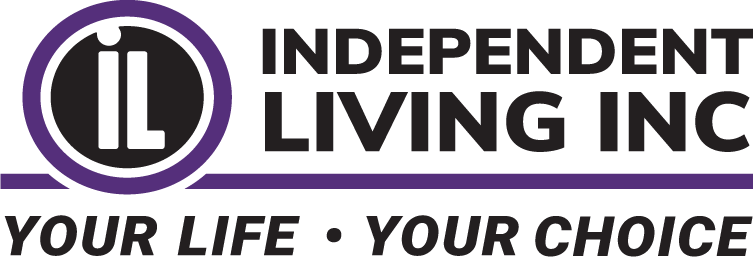Forever Grateful – Journaling Your Way to an Attitude of Gratitude
 Journaling, or the act of writing for personal use, has long been heralded by research scientists as an easy-to-use stress-busting method that has been found to be beneficial to our physical and mental health. By writing down what we’re thinking and feeling, it helps us heal from past hurts by giving the mind the space it needs to see problems and situations more objectively and clearly. When we focus our journal writing on the things that we are grateful for, we’re essentially refocusing our attention on everything which brings us joy – and who couldn’t use a little more joy in their life right now? Read on to learn how embracing an attitude of gratitude through journaling can help you reduce stress, improve your quality of life, and foster a greater sense of empathy and compassion for others, and check out this VIDEO on the benefits of gratitude journaling on stress.
Journaling, or the act of writing for personal use, has long been heralded by research scientists as an easy-to-use stress-busting method that has been found to be beneficial to our physical and mental health. By writing down what we’re thinking and feeling, it helps us heal from past hurts by giving the mind the space it needs to see problems and situations more objectively and clearly. When we focus our journal writing on the things that we are grateful for, we’re essentially refocusing our attention on everything which brings us joy – and who couldn’t use a little more joy in their life right now? Read on to learn how embracing an attitude of gratitude through journaling can help you reduce stress, improve your quality of life, and foster a greater sense of empathy and compassion for others, and check out this VIDEO on the benefits of gratitude journaling on stress.
 Gain new perspectives – By writing about good things that are happening to us or around us, gratitude journaling helps us develop greater insight into what we value, which then opens the door for us to reflect on how we can go about bringing more of those things into our lives. Scads of evidence shows how shifting our thoughts to positive things lowers stress levels, because it triggers the flow of endorphins, those feel-good brain chemicals that help temper negative emotions. Whether it’s our loved ones, the beauty of the natural world, our hobbies and interests, or our pets, giving ourselves time and permission to appreciate the good things in our life helps. This not only gives our sense of well-being a healthy boost, it also enhances the sense of empathy and compassion we have for others, because it allows us to consider how others perceive the world. Plus, when we get into the habit of feeling good from being grateful, we’re better able to manage future problems and the stresses they cause.
Gain new perspectives – By writing about good things that are happening to us or around us, gratitude journaling helps us develop greater insight into what we value, which then opens the door for us to reflect on how we can go about bringing more of those things into our lives. Scads of evidence shows how shifting our thoughts to positive things lowers stress levels, because it triggers the flow of endorphins, those feel-good brain chemicals that help temper negative emotions. Whether it’s our loved ones, the beauty of the natural world, our hobbies and interests, or our pets, giving ourselves time and permission to appreciate the good things in our life helps. This not only gives our sense of well-being a healthy boost, it also enhances the sense of empathy and compassion we have for others, because it allows us to consider how others perceive the world. Plus, when we get into the habit of feeling good from being grateful, we’re better able to manage future problems and the stresses they cause.
Tips for Journaling
 – First, make it fun! Treat yourself to a new journal and writing instruments – are you someone who needs lines to write, or do you prefer blank pages to fill? Ditto with pens, pencils, or whatever you choose to write with. Is typing it all up more your thing? Remember, it’s just for you, so make it work for you! Are you journaling for or with kids? Same things apply, but little ones might need some help in choosing a fun new journal and colored pencils to use.
– First, make it fun! Treat yourself to a new journal and writing instruments – are you someone who needs lines to write, or do you prefer blank pages to fill? Ditto with pens, pencils, or whatever you choose to write with. Is typing it all up more your thing? Remember, it’s just for you, so make it work for you! Are you journaling for or with kids? Same things apply, but little ones might need some help in choosing a fun new journal and colored pencils to use.
 – Just start and let it flow. Try starting off by jotting down a couple of that made you happy during the day, then fill in the details – think about them in terms of who/what/where/when/why/how. Who did I see today? What did I see or hear outside? How did this make me happy? Journaling for or with kids? Talk with them about what gratitude means and back up your talking points with lots of examples. Need more ideas about what to write about? Google terms like journaling prompts for ideas, or try these:
– Just start and let it flow. Try starting off by jotting down a couple of that made you happy during the day, then fill in the details – think about them in terms of who/what/where/when/why/how. Who did I see today? What did I see or hear outside? How did this make me happy? Journaling for or with kids? Talk with them about what gratitude means and back up your talking points with lots of examples. Need more ideas about what to write about? Google terms like journaling prompts for ideas, or try these:
What personal traits do you possess that you are most thankful for?
Who do you admire and what do you admire about them?
Describe something nice you’ve done for someone.
Describe something nice someone else did for you.
– Write as much as you want once you start. Try to set aside time a couple of days a week to start – again, whatever works best for you.
 – Drawing counts too! Remember the old adage “a picture is worth a thousand words”? Journaling doesn’t have to be limited to words, so feel free to use color, drawings, photos, scrapbook embellishments, etc.; no limits here! Importantly for kids, since words aren’t involved, they can express themselves visually, which is a big plus given the limited vocabularies of young children.
– Drawing counts too! Remember the old adage “a picture is worth a thousand words”? Journaling doesn’t have to be limited to words, so feel free to use color, drawings, photos, scrapbook embellishments, etc.; no limits here! Importantly for kids, since words aren’t involved, they can express themselves visually, which is a big plus given the limited vocabularies of young children.
Remember, You Don’t Have To Go It Alone – If you’re feeling overwhelmed or if you need help with coping with your stress, the Crisis Counselors for NY Project Hope at Independent Living are always available to help. Sometimes it can be helpful to talk to someone you don’t know! Want to know more about how we can help? Give us a call at 845-762-2275. Talking to us is always free, anonymous, and confidential.
References
Children’s Bureau. (2019, July 26). Gratitude journals for kids. [web log]. All4kids.org. Retrieved from https://www.all4kids.org/news/blog/gratitude-journals-for-kids/
Diary of a Journal Planner. (2021). 50 daily gratitude journal prompts to help you notice the good in your life. [web log]. Retrieved from https://diaryofajournalplanner.com/daily-gratitude-journal-prompts/
Developgoodhabits.com. (n.d.) 120 gratitude journal prompts to create more thankfulness in your life. [web article]. Retrieved from https://www.developgoodhabits.com/gratitude-journal-prompts/
Feldman, D. B., 2020, Sept. 20. The power of journaling. Psychology Today. [web article]. Retrieved from https://www.psychologytoday.com/us/blog/supersurvivors/202009/the-power-journaling
Happierhuman.com. (n.d.). 31 benefits of gratitude: The ultimate science-backed guide. [web article]. Retrieved from https://www.happierhuman.com/benefits-of-gratitude/
Jessen, L. (2016, July 8). The benefits of a gratitude journal and how to maintain one. Huffpost.com. [web article]. Retrieved from https://www.huffpost.com/entry/gratitude-journal_b_7745854
Psych Central, 2005-2021. How to begin journaling for stress relief. [web article]. Retrieved from https://psychcentral.com/blog/how-to-begin-journaling-for-stress-relief#1
Tams, L., 2020, Nov. 11. Journaling to reduce Covid-19 stress. Michigan State University MSU Extension. [web article]. Retrieved from https://www.canr.msu.edu/news/journaling_to_reduce_stress

